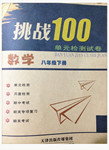题目内容
阅读下面短文, 从短文后各题的A、B、C、D四个选项中,选出适合填入对应空白处的最佳选项,并在答题卡上将该选项涂黑。
One day I was riding on a crowded bus downtown to go to work when it rained suddenly. The windows of the bus were soon _________ and we couldn’t see the outside. Everyone was in low spirits. I was sitting next to a man in a business suit an d I paid little attention _________ we both got off at the same stop and walked to the same news-stand(报刊亭) to get a morning _________ .
The man _________ the stand was obviously having a bad day. He was _________ and unsmil-ing as we bought our papers, which only _________ more gloom (郁闷) to my day. The business-man _________ my eyes and smiled brightly, _________ the news-stand owner for the paper and for being open on such a morning to _________ we were able to get our papers.
As we went away, I asked this man why he was so _________ to the newsman when he didn’t respond to his _________ of thanks and friendliness. The businessman smiled at me and said, “Why would I let someone else _________ what I say and what I feel?”
We then _________ to go to our own work places. To this day, I still don’t know who that businessman was, or where he worked. _________ , I know nothing about him. He appeared briefly in my life and disappeared just as _________ . But I’ve never forgotten the words he said and his _________ which seemed like a ray of light on a gloomy day.
That was a good 25 years _________ , but the effect this had on my life has lasted. I have learnt that we cannot control people and _________ we are in, but we can always control our _________ to them. That is, it is within our control and our _________ to make such positive decisions and thus to make a positive difference.
1.A. closedB. cleanedC. brokenD. covered
2.A. afterB. untilC. sinceD. unless
3.A. coffeeB. suitC. callD. pa per
4.A. runningB. watchingC. holdingD. closing
5.A. nervousB. happyC. rudeD. excited
6.A. providedB. returnedC. addedD. experienced
7.A. caughtB. sensedC. noticedD. understood
8.A. askingB. praisingC. remindingD. thanking
9.A. make clearB. make sureC. make outD. make up
10.A. helpfulB. seriousC. pleasantD. rude
11.A. conversationB. expressionC. explanationD. impression
12.A. controlB. understandC. explainD. correct
13.A. attemptedB. decidedC. guidedD. separated
14.A. ThankfullyB. ActuallyC. LuckilyD. Usually
15.A. gently B. regularlyC. quicklyD. quietly
16.A. humorB. smileC. businessD. help
17.A. agoB. beforeC. laterD. after
18.A. solutionsB. locationsC. situationsD. possibilities
19.A. reactionB. temperC. wordsD.weakness
20.A. energyB. secretC. hobbyD. power
 挑战100单元检测试卷系列答案
挑战100单元检测试卷系列答案

 United Nations Children’s Fund, American government agencies, the World Bank and soap makers Unlever and Procter and Gamble. The organizers say all soaps are equally effective at removing disease-causing germ. They say the correct way to wash is to wet your hands with a small amount of water and cover them with soap. Rub it into all areas, including under the fingernails. Rub for at least twenty seconds. Then rinse well under running water. Finally, dry your hands with a clean cloth or wave them in the air.
United Nations Children’s Fund, American government agencies, the World Bank and soap makers Unlever and Procter and Gamble. The organizers say all soaps are equally effective at removing disease-causing germ. They say the correct way to wash is to wet your hands with a small amount of water and cover them with soap. Rub it into all areas, including under the fingernails. Rub for at least twenty seconds. Then rinse well under running water. Finally, dry your hands with a clean cloth or wave them in the air.